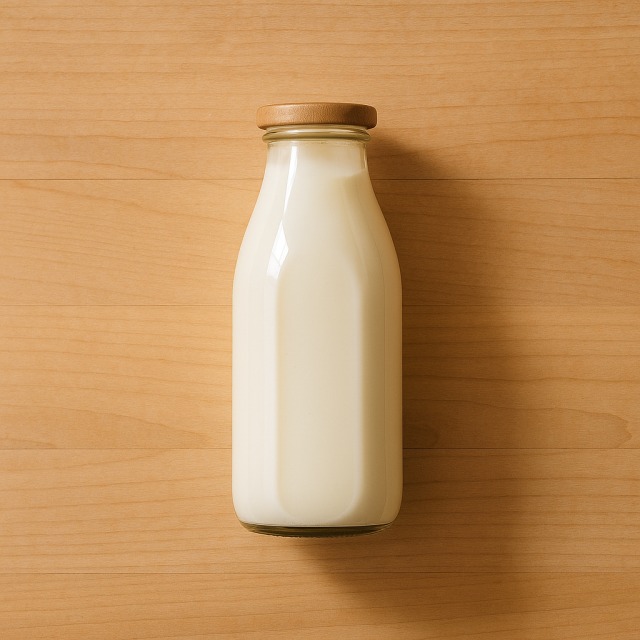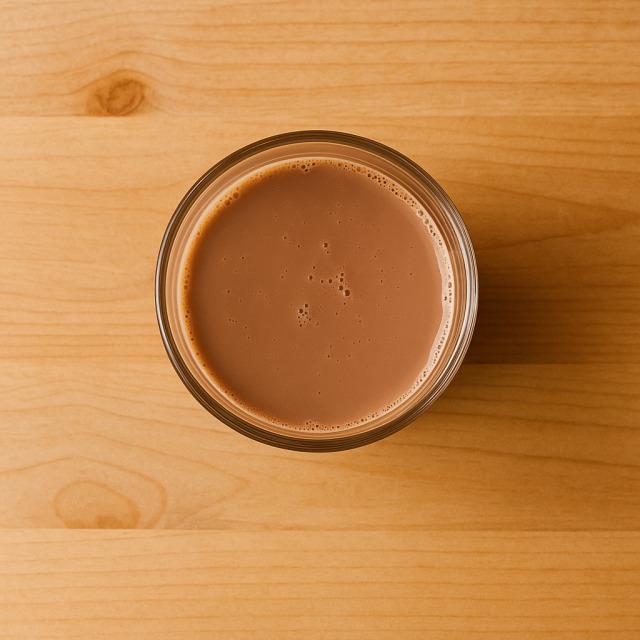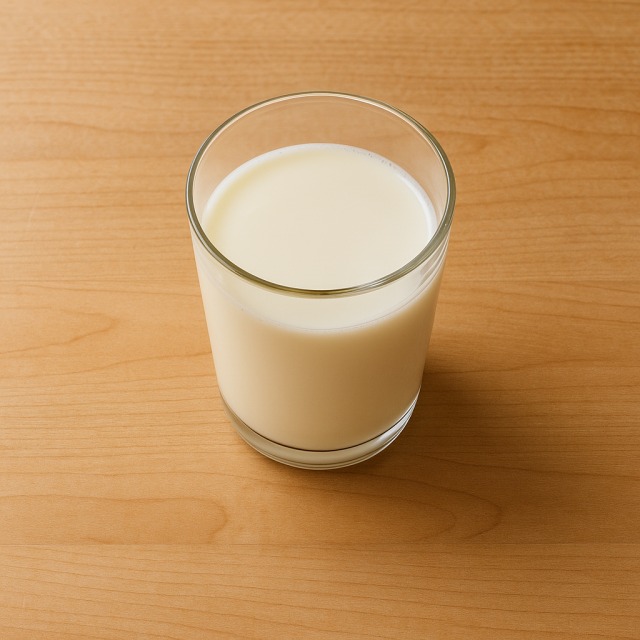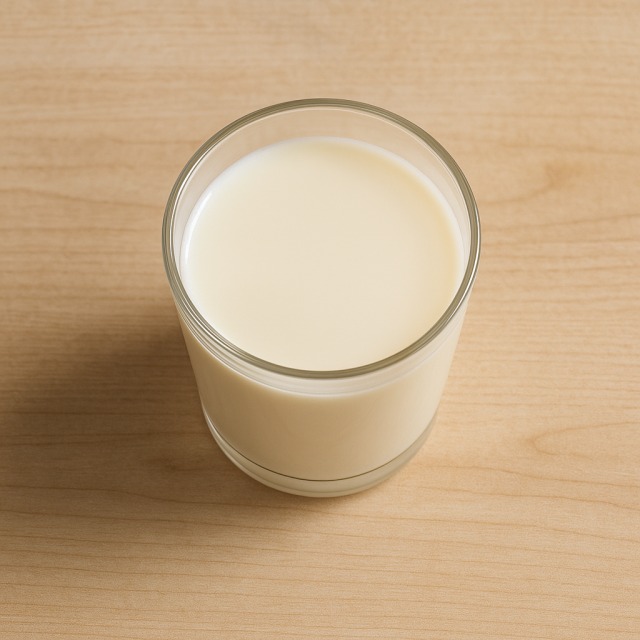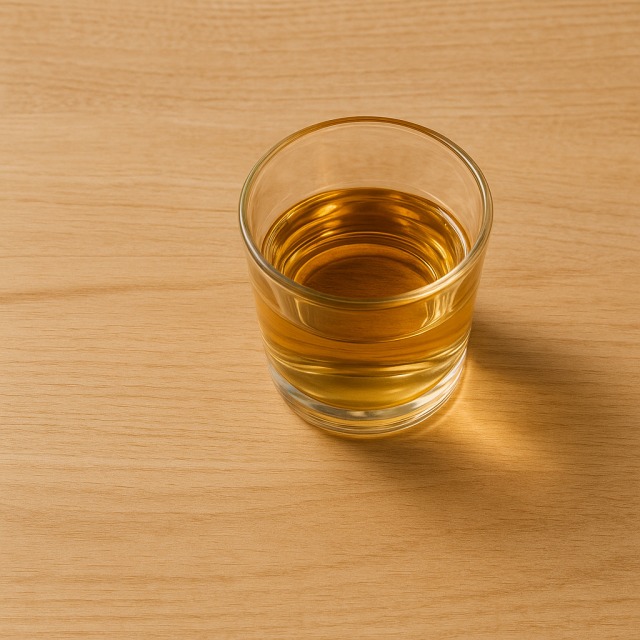Calorie Chart / Beverages / Milk-shake
How Many Calories Are in Milkshake?
Calculation of the nutritional value & Recommended Dietary Intake of milkshake
For ml and a calorie requirement of kcal
| Calories 273 kcal | Proteins 9 g | Lipids 7.5 g | Carbohydrates 43 g |
| 14% | 12% | 11% | 16% |
Health benefits of milkshake
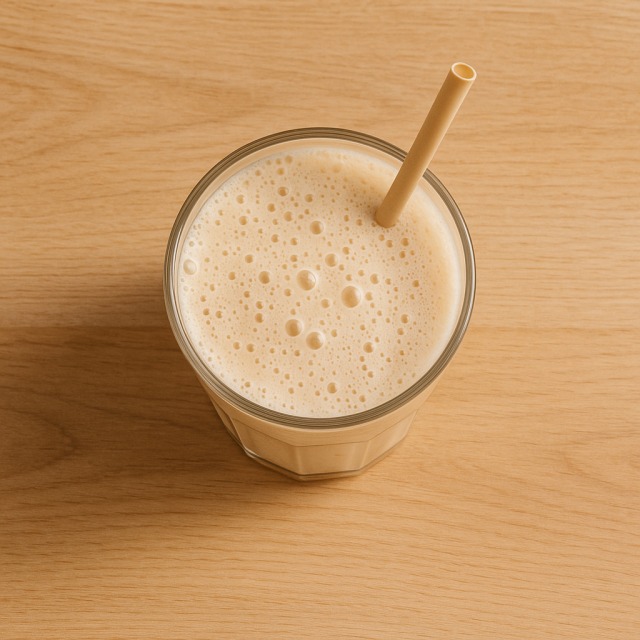
Milkshake - 100ml
Calories 109 kcal
Proteins 3.6 g
Lipids 3 g
Carbohydrates 17 g
With about 109 kcal per 100 g, the traditional milkshake is considered a moderate-calorie treat: it supplies fewer calories than many pastries but clearly more calories than plain skimmed milk. The drink brings high-quality proteins (3.6 g/100 g) and a small amount of lipids, while its sugars deliver rapid energy—useful when calories need to be taken in quickly.
Because it is prepared from dairy ingredients, a milkshake naturally provides calcium, phosphorus, iodine, and vitamins B2, B12, and D, all essential for bone health and normal energy metabolism. When blended with fruit such as strawberry or banana, the micronutrient spectrum widens to include vitamin C, potassium, and polyphenols without dramatically raising calories if no extra sugar is added.
For athletes, the mix of carbohydrates and proteins can speed post-workout recovery by restoring glycogen while limiting muscle breakdown—an advantage when calories have been burned intensely. Conversely, people watching their calorie budget may opt for semi-skimmed milk or even frozen light yogurt as a base to shave off calories without losing creaminess.
Invented in the 1920s in the United States, the milkshake was originally promoted as a tonic drink before soda fountains made it a dessert icon. Today it remains highly customizable: swapping ice cream for frozen fruit or using plant-based milks are popular strategies to play with texture, taste, and—once again—calories.
Tips for incorporating milkshake into a balanced diet
If you want the pleasure of a milkshake while keeping calories under control, limit the portion to 200 ml and prepare it with skimmed milk, a handful of frozen raspberries, and half a frozen banana for natural sweetness. This delivers a creamy texture with far fewer calories than a version based on full-fat ice cream.
Looking to refuel after training? Blend one serving of vanilla milkshake with a scoop of whey (or simply 20 g extra-powdered whole milk) and enjoy it alongside a grilled chicken breast salad. The balanced plate brings high proteins, moderate fats, and well-calculated calories for muscle recovery.
For a weekend treat, pair a small chocolate milkshake with two homemade waffles. To offset the extra calories of this indulgent combo, complete the meal with a bowl of fresh watermelon, rich in water and fiber.
Classic recipes to try include: strawberry milkshake with a dash of maple syrup, coffee milkshake topped with light whipped cream, or a tropical mango-pineapple milkshake spiced with a hint of vanilla. In every case, control the quantity of added sugar to keep calories in check.
Frequently Asked Questions
- How many calories are in a milkshake?
- There are 109 kcal per 100 g.
- Is milkshake fattening?
- It depends on the recipe: the basic version provides moderate calories, but using ice cream and syrup can quickly raise calories above 200 kcal per 100 g.
- How can I reduce the calories in a milkshake?
- Replace ice cream with frozen light yogurt, switch to skimmed milk, and sweeten with a ripe banana instead of sugar—each swap removes several calories per sip.
- Is a milkshake good after a workout?
- The mix of fast carbohydrates and proteins can help recovery; just adjust serving size so the calories match your expenditure.
- What is the difference between a milkshake and a smoothie in terms of calories?
- A smoothie usually relies on whole fruit and often fewer added sugars, so its calories come mostly from natural fructose, whereas a milkshake tends to include ice cream or syrups that raise both sugar content and calories.
Similar foods
Information provided by Calorie Menu may contain inaccuracies or errors. It cannot, under any circumstances, substitute medical advice or medication.
